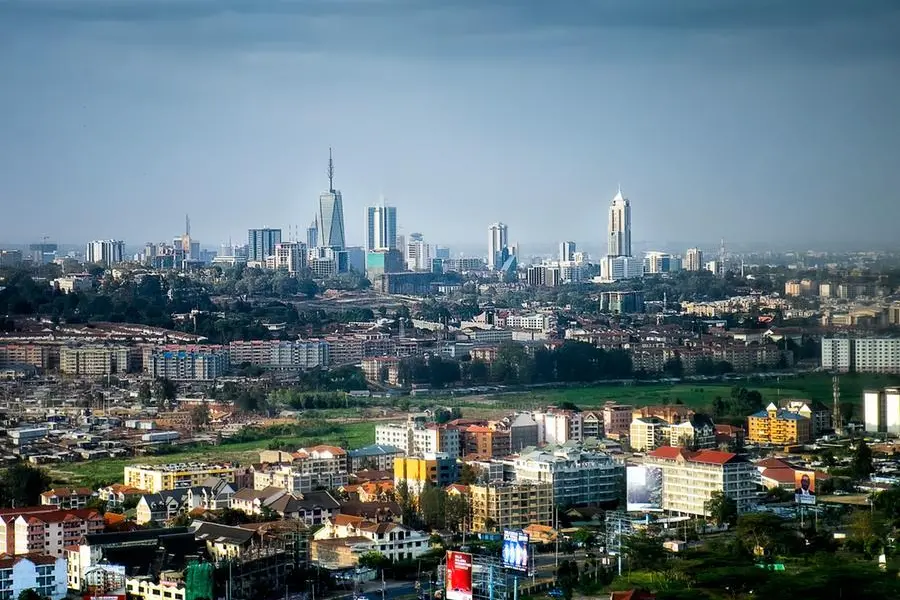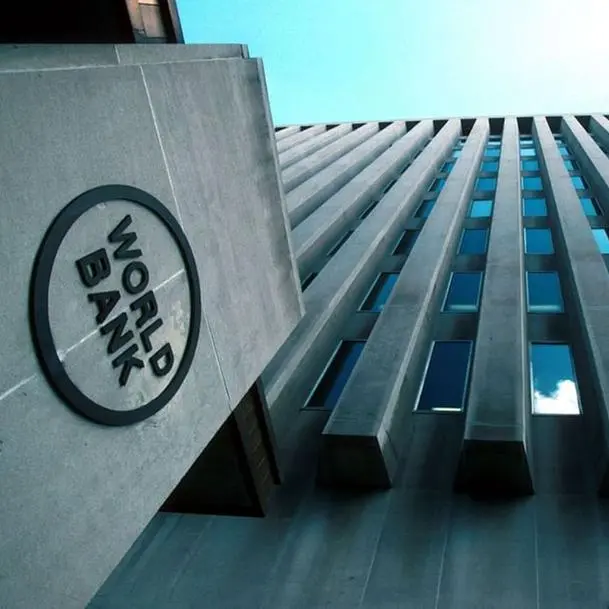PHOTO
The return of businesses to offices across several cities in the African continent is opening up the property market in offices and warehouse sectors.
“However, there remains a shortage of high-quality, internationally specified warehouse facilities to satisfy the growing level of requirements,” said Boniface Abudho, Africa Research Analyst at Knight Frank in an interview with Zawya Projects.
With a rising global focus to spur investment in green buildings, Africa is seeing demand for best-in-class space with ESG compliance yet, “the number of green-certified developments remains low,” said Abudho.


Sharing his outlook on the residential property market, the Knight Frank analyst noted that affordability remains the key to unlocking Africa's home potential. But rising lending rates are quickly becoming a stumbling block for house hunters in a market that has historically depended on access to cheap debt.
Excerpts from the interview:
Cross-border investment in African commercial estate in 2021 is reported to be down by 49 percent from 2020. What is the current outlook for the real estate market in commercial space in Africa?
With the abating of COVID-19 restrictions, many businesses have made a full return to the office. This has helped lift occupancy levels in all of the 29 African cities tracked by Knight Frank.
The influx of returning expatriates, most of whom had left during the pandemic due to job losses, has boosted office occupancy rates around many cities on the continent.
The successful completion of several key general elections has reinforced the market’s confidence levels. For instance, Kenya and Angola successfully completed their general elections in the summer and investors and occupiers have slowly begun to ramp up their activities in these two markets.
Markets like Egypt are also benefiting from normalisation of global travel. Businesses that had previously exited Cairo due to the uncertainty surrounding business continuity in the wake of COVID-19 are returning. This has helped to lift occupancy levels to around 70 percent.
Elsewhere, Africa's industrial sector continues to remain resilient with agriculture-linked activities, data centres, and logistics facilities underpinning demand. Various government initiatives designed to spur growth have bolstered the demand.
However, there remains a shortage of high-quality, internationally specified warehouse facilities to satisfy the growing level of requirements.
Inadequate transport and energy infrastructure remains the key demand dampener in many countries. This is changing rapidly with governments recognising the importance of upgrading existing infrastructure to support local economies and sectors such as industrial and logistics.
Could you further elaborate on your observations on commercial real estate, and specifically on the office space market?
Africa’s office markets remain buoyant, with the demand for prime offices outpacing supply in several cities across the continent. This is despite the spiking inflation and repeated currency devaluations.
Most businesses have returned to the office full-time as the pandemic restrictions have been largely removed from around the continent.
The rising demand for smaller offices of less than 300 square metres (sqm) in Tanzania, Uganda and Zambia is of particular interest. This is being driven in part by rising global inflationary pressures which are curtailing occupiers’ expansion plans, particularly those of the international variety.
While office rental rates in Lagos have held steady at $55 psm since the fourth quarter of 2021, they remain the highest on the continent.
Nigeria appears to have fully recovered from the pandemic, with occupancy levels for Grades A and B standing at close to 100 percent. Grade A offices continue to attract the highest demand, despite their low supply.
One of the reasons why rents have remained stable in the Lagos market is due to the declining pipeline of new projects. And with a limited number of new developments, upward pressure on lease rates is expected to persist.
However, despite the apparent availability of office space, businesses are focussed on best-in-class space, preferably with ESG credentials attached. These buildings remain in short supply around the continent. Businesses are willing to pay a premium for such offices, especially international companies with global ESG mandates.
On ESG, could you throw light on the prospects for ESG-compliant properties?
In Africa, demand is centred on best-in-class space, with investors and occupiers zeroing in on schemes that satisfy their ESG criteria. This theme will continue to intensify, raising questions about the future of older, more secondary and non-ESG-compliant stock.
However, the number of green-certified developments remains low. According to our research, Africa has approximately 785 green-rated buildings, 641 in South Africa alone. For comparison, the United States has 81,000 green-rated buildings and is the world leader.
Rising inflation and increasing cost of borrowing are said to be curbing domestic demands for houses. What according to you is the key to opening up the sluggish home sector in Africa?
Affordability remains the key to unlocking Africa's home potential.
Across the continent, housing demand is shifting away from city centres to the suburbs primarily due to affordability considerations. The shift in demand is further enhanced by the relative gain in indoor and outdoor space. Affordability is expected to come into even sharper focus with inflation continuing to edge upward and household incomes continuing to be eroded.
Historically, housing affordability challenges have usually been addressed at the government level through various subsidies. In the current environment of record inflation, the continent’s authorities are rapidly mobilising to stave off any cost-of-living emergency.
The Egyptian government, for instance, has already intervened in the residential market by reducing land acquisition costs. Other governments have tried to encourage the development of more affordable housing through tax rebates on construction costs.
Elsewhere, the challenge is even greater. In many markets on the continent, demand for residential real estate has historically been fuelled by easy access to cheap debt financing, but the rising lending rates are quickly becoming a stumbling block for many house hunters.
For example, mortgage rates in Nigeria stand at over 20 percent, positioning them well out of reach of the average buyer. The recent transactions in the country are being linked predominantly to the cash-rich diaspora.
Developers recognise the scale of the challenge, and the continent has seen a wide range of residential property types being brought forward to address Africa’s affordable housing needs. Co-living and fully furnished apartments have quickly become more mainstream and are proving to be a hit among locals as well as returning single expatriates.
Which are the countries and sectors in Africa’s property market that have fared well or have bright prospects in near future?
Data centres have emerged as the new demand drivers. They are gaining traction amongst developers and investors in Africa as an attractive alternative development asset.
Separately, the logistics sector also enjoys heightened demand with many occupiers gravitating towards high-quality warehouses, which remain in short supply. Developers are rapidly mobilising around the continent, but a significant deficit remains.
Manufacturing is also fast becoming a central pillar of demand for many of the continent’s industrial markets. Kenya, for instance, is encouraging the consumption of locally produced goods through initiatives such as 'Buy Kenya, Build Kenya', which is creating new demand.
Rising inflation in South Africa is also boosting demand for locally manufactured goods. Unsurprisingly, demand from manufacturers is rising rapidly.
Do you see any discernible effect of global factors on investment in African real estate?
The monetary tightening in the United States and rising risk premiums associated with the war in Ukraine have placed downward pressure on exchange rates across Africa. However, real estate investors have mitigated this risk by deploying their capital to projects with dollar-denominated returns, where possible.
From an investment point of view, rising oil prices have benefitted many hydrocarbon-dependent economies in Africa. Indeed, Uganda is pressing ahead with plans to invest $15 billion in developing its oil sector, with the first exports expected by 2025. This is likely to have a transformative impact on the economy.
Is the continent's real estate market out of the pandemic challenge or do the pandemic-related legacies persist?
Vaccination rates in Africa remain lower than in the rest of the world. Only 24.4 percent of people in Africa have received one dose of the COVID-19 vaccine compared to 69 percent around the world. There have been challenges in accessing rural populations and managing stigmas associated with vaccines.
Some legacy economic challenges spawned by the pandemic remain. Although, with restrictions now largely removed, demand is improving across all sectors.
(Reporting by SA Kader; Editing by Anoop Menon)





















